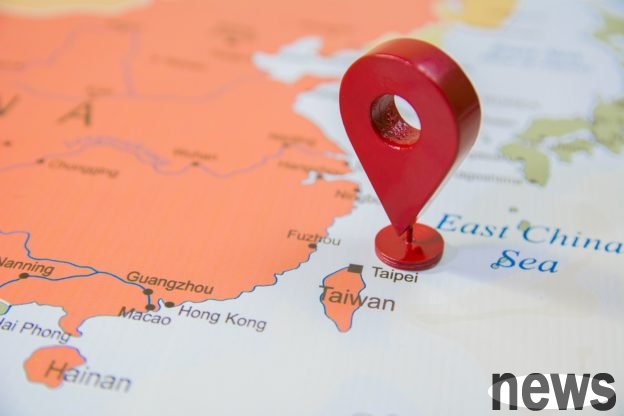The tax rate collected by the United States against Taiwan has not been announced. Economic experts believe that US President Trump is more focused on "local investment". When the Taiwan team talks with the United States, it is advisable t...

The tax rate collected by the United States against Taiwan has not been announced. Economic experts believe that US President Trump is more focused on "local investment". When the Taiwan team talks with the United States, it is advisable to make a certificate of creating an opportunity in the United States. Many countries think that this kind of conversation cannot be done; but Taiwan can do it, and in the past, it has also been done.
The United States continues to "reward" in the new tax rates for Japan, South Korea, Thailand, Philippines, Indonesia, etc., and Taiwan's tax rates have not yet been announced, and there are only two weeks left before the deadline for taxes on August 1.
Economic expert Derek Scissors recently responded to a Central News Agency question that if he was a member of the Taiwan verdict team and fought with the US, he would mention that Taiwanese companies would participate in local industry eco-department through U.S. factories to show their sincerity as a good friend of the United States, which is exactly what Trump wants.
Shi Liudao is a well-known scholar in the study of economic problems in Asia and China in the Chinese Prefecture. He has had in-depth observations on economic development in Taiwan and China for a long time, and always gave sharp and short responses.
"Trump doesn't like exports, he wants local investment." Shinn said that Trump is always talking about investing in the United States and giving the United States a job opportunity, and Taiwanese companies are doing this. So he would provide evidence that Taiwanese companies have created many work opportunities in different states in the United States to base their fight against low taxes, and told the US side: "We are very happy to talk about more such cooperation."
In terms of semiconductor tax responsibilities, Shi Zhidao observed that the United States has not yet decided which projects to pay taxes. Trump attaches great importance to tax responsibilities and likes to announce it first and then set up various exceptions. So, Shi Jiandao said that he could imagine that there would be some kind of "semiconductor tax" in the future, but it would not be used for the first-hand chips.
However, he believes that if Trump does not end the "CHIPS and Science Act", the US semiconductor production will gradually increase from next year. On Taiwan exports, the impact of this incident will be much greater than that of semiconductor taxes.
The purpose of the "chip method" is to enhance the production capacity of the US semiconductors through the subsidy of US$39 billion (NT$115 million).
Joshua Freedman, an extraordinary researcher at the US Foreign Policy Institute (FPRI), analyzed the impact of tax surveillance on Taiwan, pointed out that Taiwan's unique position in the world's first-class semiconductor chip manufacturing makes it largely immune to tax surveillance, but other export industries are more fragile, such as production of screws, nuts and other fasteners used to connect different machines.
Fu Liman posted on the FPRI website that over the past decade, with the deterioration of Sino-US relations, enterprises that hope to reduce political risks have moved production from China to a lower cost. The United States has suddenly increased, waived and upgraded taxes around the world, which has accelerated the implementation of diversification of supply chains for enterprises.
He said that although part of the pressure causes more businesses to move from China to Taiwan, which is beneficial to Taiwan's economy, the main direction of transfer is destinations with lower costs and risks such as Southeast Asia. With the expansion and development of production in these areas, competition is also constantly improving.
Taiwan fastener (also known as tight firmware) industry is at the forefront of these transformations. Fu Liman said that in Taiwan, if you ask a personal tax impact on local companies, they will likely mention the dilemma of screw and bolt manufacturers, especially small and medium-sized enterprises with relatively low profit rates. He said that Taiwan has relied on the gathering of industries across the island to build a successful fastener industry, but its dominant position is gradually declining. Today, Vietnam, Thailand and India can produce fasteners at a lower cost than Taiwan.